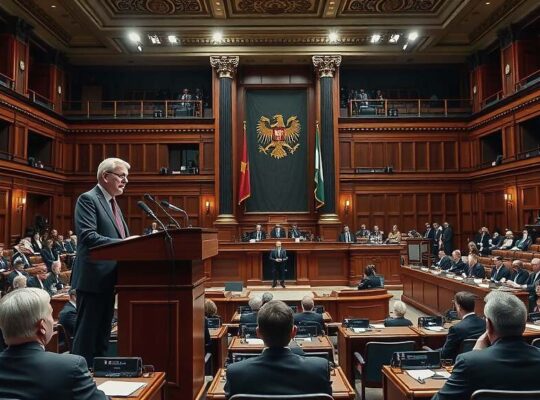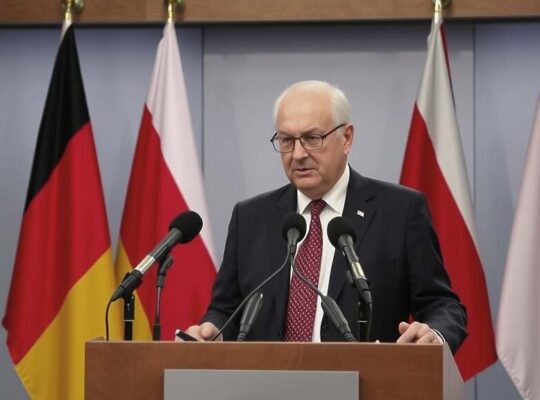The German government is quietly downplaying the legally binding nature of the recently announced trade deal between the United States and the European Union, raising questions about the commitment and strategic implications of the agreement. In a response to a query from the Green Party parliamentary faction, the Federal Ministry for Economic Affairs, under the leadership of CDU politician Katarina Reiche, has asserted that the joint declaration represents a concrete elaboration of a political understanding, lacking any legal binding effect.
The agreement, heralded by EU Commission President Ursula von der Leyen and former U.S. President Donald Trump, initially pledged European energy imports, particularly oil and liquefied natural gas, worth €700 billion over three years in exchange for reduced tariffs. However, Berlin’s assessment suggests this commitment is far from definitive. The ministry portrays the arrangement as a preliminary step in a broader process of expanding trade relations, emphasizing the absence of any further written agreements to solidify the pledges.
Official data indicates that the EU imported roughly €73 billion worth of coal, oil and gas from the United States last year. The government’s response indicates that the current agreement is insufficient to impose any legally enforceable obligations on private energy companies, raising doubts about the ability of the EU to reliably meet the ambitious import targets initially touted.
This cautious assessment is fueling concerns among some political observers. Green Party energy expert Michael Kellner has cautioned that Trump, or his successors, could leverage the initially promised imports as a point of pressure, threatening renewed tariff hikes if the expectations are not met. Kellner’s warning-that the deal is not “cold coffee”-underscores the potential for renewed trade tensions and underscores the precarious nature of the agreement, particularly in a potentially shifting geopolitical landscape. The lack of legal binding and the nuanced interpretation by Berlin suggest a strategy of managing expectations and offering flexibility, while simultaneously acknowledging the potential for future demands from Washington.












